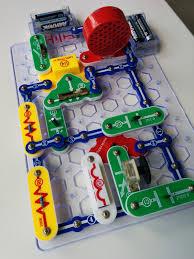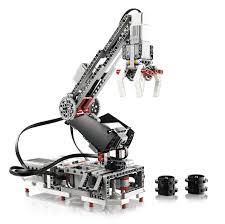STEM FAQs
How will this STEM initiative add value to students?
"Our aim is to teach our pupils to be creative, critical thinkers. To be innovative and to become the new Entrepreneurs of Sierra Leone and moving the African continent beyond the 21st century.
We want them to create and solve the world’s biggest challenges and to find solutions to the countries biggest problems.
Let us give the young people the skills and tools to become the next critical minerals, and to be miners of their thoughts and ideas to develop our country and ultimately the world.
To play their part in creating our best conceivable world. Simply because they can!"
Students gain 21st century learning skills in the STEM Lab by engaging in projects that develop:
- Communication
- Collaboration
- Critical thinking
- Problem solving
- Information literacy
- Adaptability
Skills are developed in a project-based learning environment where students apply technology to projects of their own design.
 |
 |
|
Alternative Energies and Renewables ● Electricity |
Circuitry ● Arduino |
 |
  |
|
Computer Graphics ● Photoshop |
Robotics & Control Technology ● Lego EV3 |
 |
|
|
Software Engineering ● Python |
|
Will you tell us how successfully this campaign was?
Yes. This campaign is very much a starting point as we look towards the future of STEM across all schools in Sierra Leone. We have taken the initiative to raise this issue now and try to find a solution for our pupils.
However, our plans are to offer holiday classes to pupils of other schools and work with those schools and alumni associations to develop STEM capabilities at their schools too. We will share our Blueprint, training material and lessons learnt with any local school that is interested. In the first instance, please ask your school principal to reach out to Principal, The Rev Cannon Leonard Ken Davies or the Alumni Association chapter that is in your region. Alternatively, please contact us by email: stemcampaign@slgs.edu.sl.
Why is mentoring so important for anyone pursuing higher education or a career in STEM?
Mentorship is a very important aspect of professional development in any career path. Effective mentors can help the next generation of STEM professionals navigate new challenges both outside and within the workplace, and they can provide a range of opportunities. Mentors are particularly important for under represented groups, such as women, to promote a sense of belonging and to help overcome social barriers. We are engaging with professional institutions such as Sierra Leone Institute of Engineers http://slie-sl.org/, Engineers for Change https://engineersforchange-sl.org/ or esteemed old boy Professor Christopher B-Lynch, retired Consultant Obstetrician and Gynaecological Surgeon. He is a Nobel prize nominee, writer and inventor http://cblynch.co.uk/
Questions about the sustainability?
How do you intend to make this STEM initiative sustainable?
- We are investing in Continuing Professional Development (CPD) for all Science and Computing teachers to ensure they have relevant skills and assets to showcase STEM with the pupils.
- The School Principal and Governing Body have made a commitment to provide a budget to purchase future experiments and tools. Year-on-year funding is an expensive commitment. Old boys will contribute and, if required, parents may also be asked to make a small contribution to the cause.
- Pupil power using technics techniques like ‘’Learn by Playing’’. Our students are ready to learn, we just need to give them the tools to do so.
Questions about the implementation?
How did you identify the STEM curriculum and experiments?
We setup a working group to develop the curriculum. The group consisted of current science teachers, STEM teachers from the UK & USA. These recommendations were then refined after assessing what similar schools in Ghana, Nigeria, UK and USA were teaching.
Does your teachers have the skills to deliver these STEM courses?
Yes, they do. We also put them through an intensive instructor-led STEM training, providing them a repository of STEM teaching assets they can reuse and budded them with UK STEM teachers. A number of the STEM module require a percentage of the teachers to travel abroad for training. The training involves them being independently assessed and certified to teach those modules.
How will this initiative add value to pupils?
We are preparing our pupils for working in tomorrow’s world. “In the 21st century, scientific and technological innovations have become increasingly important as we face the benefits and challenges of both globalization and a knowledge-based economy. To succeed in this new information-based and highly technological society, students need to develop their capabilities in STEM to levels far beyond what was considered acceptable in the past.” (National Science Foundation)
Is this exclusively for pupils of the School?
No, the STEM and Computer capabilities will be open to all secondary school pupils during the holiday. Although, initially in the first six month of implementation the capability will only be available to pupils from the School.
How do pupils get access to these STEM?
- We have integrated the STEM experiments into the Sierra Leone Grammar School’s science and computing curriculums. We have created after school clubs to enable more exposure to the STEM and coding activities.
- We publish dates and curriculum for STEM holiday clubs open to pupils of all secondary schools. Clubs under consideration include:
- Girls that code
- Robotics club
- Electronics club
- Coding club
- IT Networking club
- Media club
- IT Essentials
- STEM Overview – 1 day
